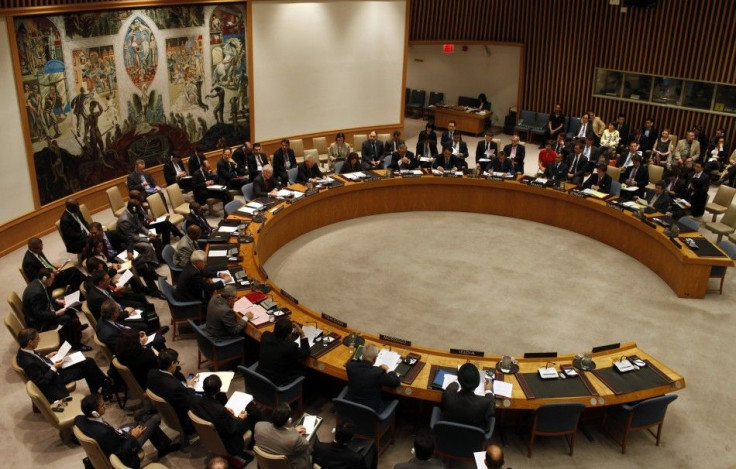Syria Crisis: Russia, China Join UN Council In Backing Annan Peace Plan

The United Nations Security Council, including formerly recalcitrant members Russia and China, unanimously endorsed a peace plan for Syria that was proposed by Kofi Annan, the former U.N. chief who is now a special envoy to the Middle East.
In a statement the council said it supports Annan's program to bring an end to all violence and human rights violations, secure humanitarian access and facilitate a Syrian-led political transition to a democratic, plural political system.
The 15-member council called on Syria's government and opposition to work in good faith with the envoy towards a peaceful settlement of the Syrian crisis.
While the statement Wednesday didn't explicitly demand that President Bashar al-Assad step down (a measure the Arab League has stipulated), the council warned that the regime should immediately cease troop movements towards, and end the use of heavy weapons in, population centers, and begin pullback of military concentrations in and around population centers.
The support of Russia and China -- longtime allies of Syria that had previously vetoed U.N. measures against Assad -- would appear to signal a changed attitude toward the autocrat's regime, which so far has rejected virtually all outside efforts at intervention.
Annan's peace plan, which hasn't been made public, reportedly consists of six points designed to end the conflict, which has claimed at least 8,000 lives and displaced untold thousands since it erupted in March 2011 as part of Arab Spring revolts across the Middle East.
Wednesday's Security Council statement also threatened further steps as appropriate if Assad's regime fails to abide by the terms of the Annan plan.
Russia's foreign minister, Sergei Lavrov, who in recent days has heavily criticized Assad, said in Berlin: The council text reflects the reality in Syria and supports Annan's aims. We support it fully. The most important thing is that there are no ultimatums ... and no suggestions as to who carries more blame.
Western nations roundly applauded Annan's plan.
U.S. Ambassador Susan Rice told reporters, We urge the Syrian authorities to respond swiftly and positively.
Mark Lyall Grant, Britain's U.N. envoy, said the council's statement sends a strong and united message to the government and all other actors in Syria that they need to respond ... immediately to Annan's proposals.
The German U.N. ambassador, Peter Wittig, said he was hopeful the Syrian crisis may have reached a turning point.
This is a newly found unity of the council which we welcome after this rather sad track record of the two double-vetoes in the past, and it shows nobody can really have an interest of mayhem in the region, he said.
Meanwhile, the current U.N. secretary general, Ban Ki-moon, characterized the Syrian crisis as the gravest problem in the world right now.
We do not know how events will unfold, Ban said during a speech in Indonesia. But we do know that we all have a responsibility to work for a resolution of this profound and extremely dangerous crisis ... that has potentially massive repercussions for the region and the world.
© Copyright IBTimes 2025. All rights reserved.




















